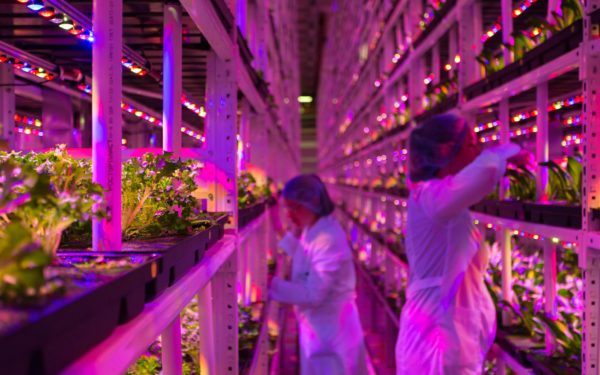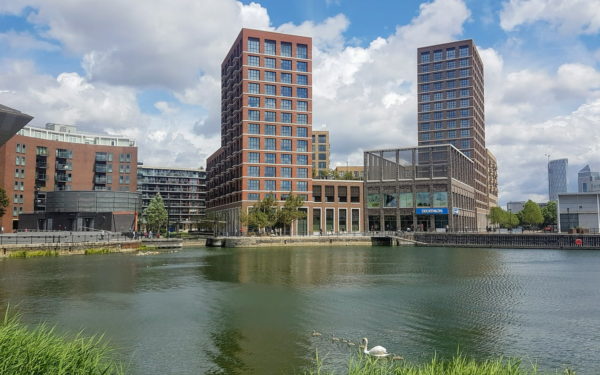
Winter School 2023
Reducing e-waste for an improved circular economy.
During the 2023 winter residential school, students explored principles of circular design and economy, as well as the right to repair, to help reduce the amount of electronic waste (e-waste) generated in TEDI-London’s local area – Canada Water.
Their brief was to create a long-term community repair initiative that could be run by TEDI-London and continually benefit the local community, beyond the scope of the visiting students’ three-week programme.
Each student team developed distinct solutions to support the overall initiative and showcased them during a launch repair event that was run in partnership with London-based social enterprise, Restart.
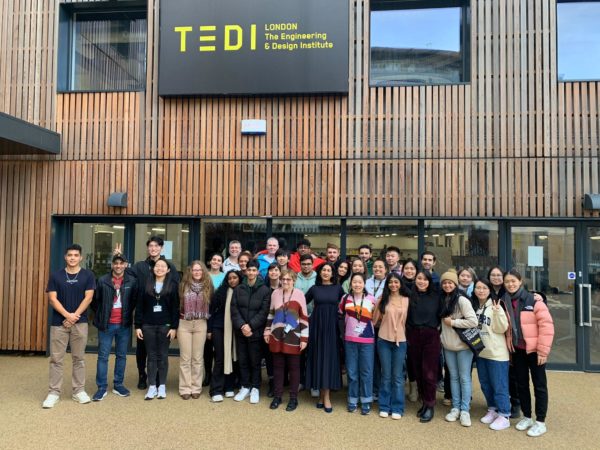
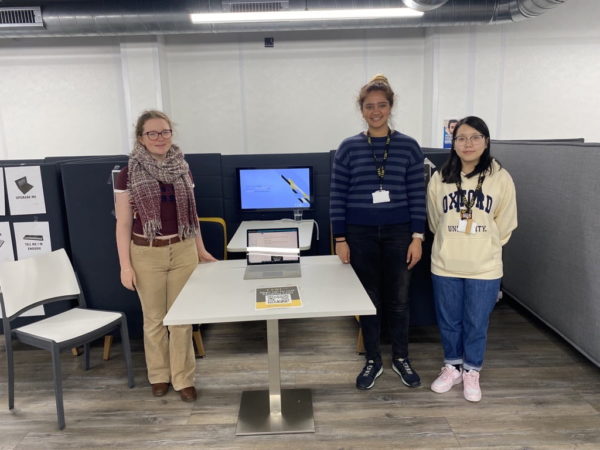
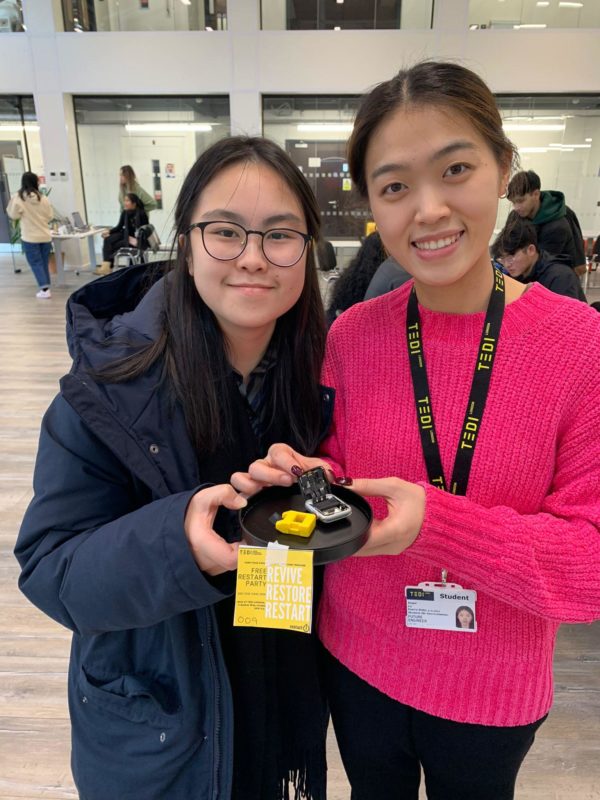
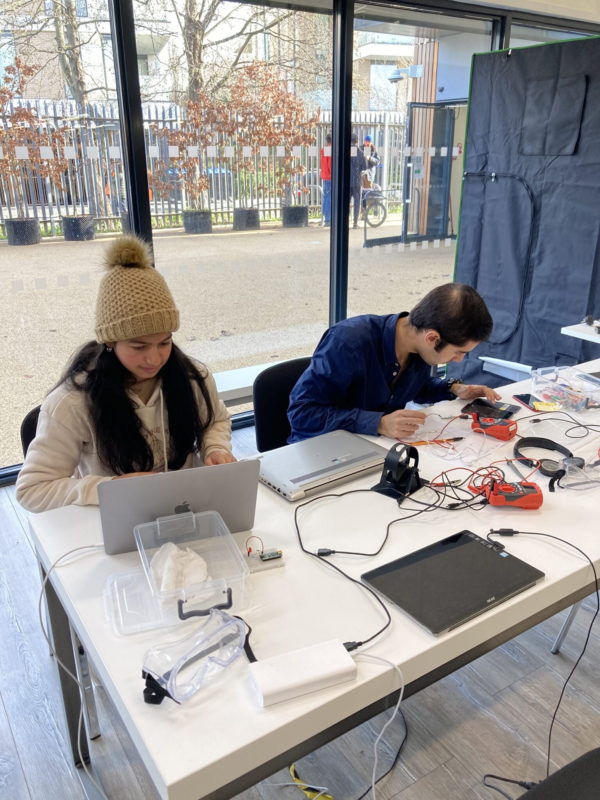

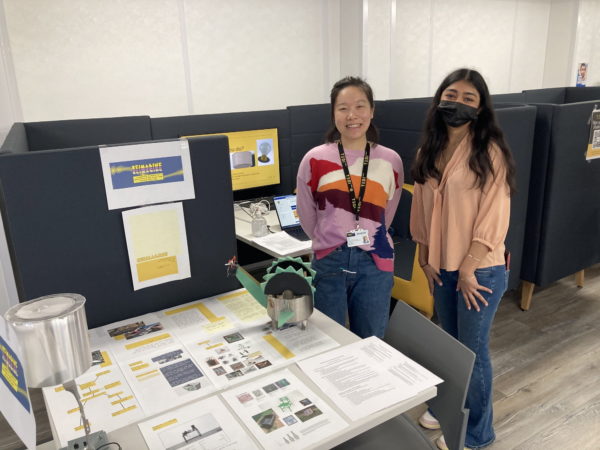
Key features of the initiative:
-
During these campus-based events, members of the Canada Water community are invited to bring their slow or damaged small electrical devices and appliances to be diagnosed and, if possible, fixed. Students work alongside their teaching technicians and local, technically-savvy volunteers, to encourage guests to restore their belongings and minimise the amount of e-waste they produce. With the help of repairers, guests can also make their own attempts at restoring their electronic goods.
-
To encourage further engagement from the community – and from young people in particular – at repair events, one of our student teams developed a blueprint for competitions to be run in partnership with local artists. Safe materials that are gathered from non-repairable items are made available for creative projects, preventing them from entering landfill even when items can’t be repaired. The competitions would also familiarise participants with practical work, building their confidence to carry out their own repair tasks in the future.
-
To ensure that there are enough community members with the skills needed to carry out repair tasks, one student team developed repair workshops to be made available to the public for a small fee. These can be run in between repair events to teach members of the community how to safely become repairers themselves. After developing this new skill, they can then carry out their own repairs rather than relying on the events on campus, or even volunteer at the events to help others reduce their e-waste generation.
-
One of the students developed a website that can be used to engage the community and inform them about upcoming events, classes, competitions, as well as publishing information about how many items were diverted from landfill at each event.
'Right to repair' - what does it mean?
From reducing e-waste to having more control over spending habits – find out some of the benefits linked to the right to repair movement.




